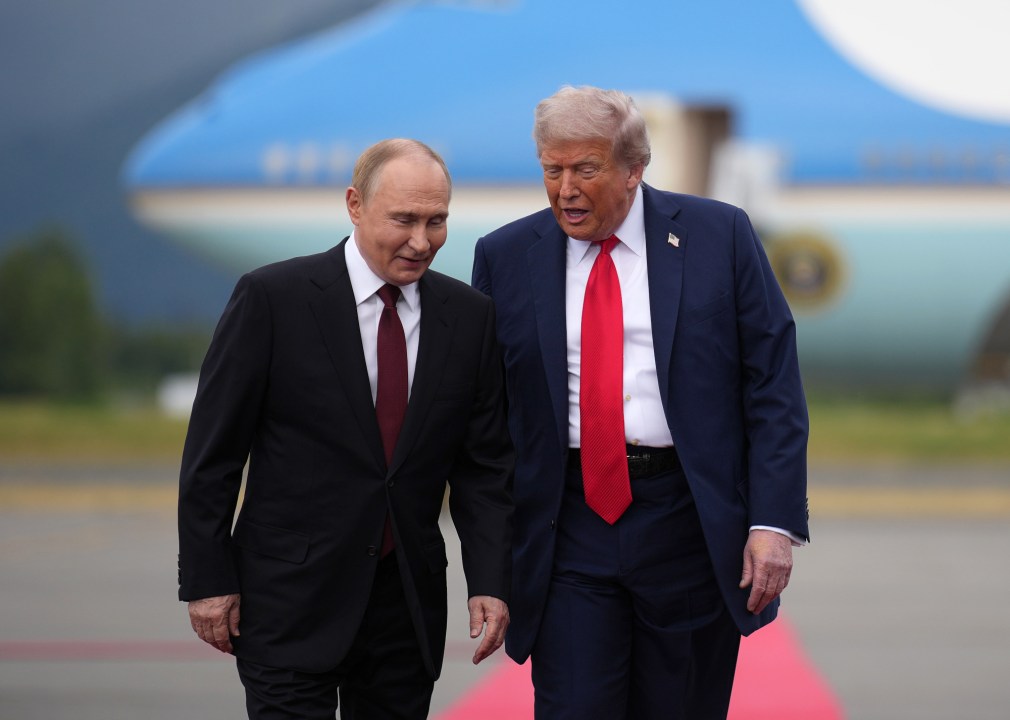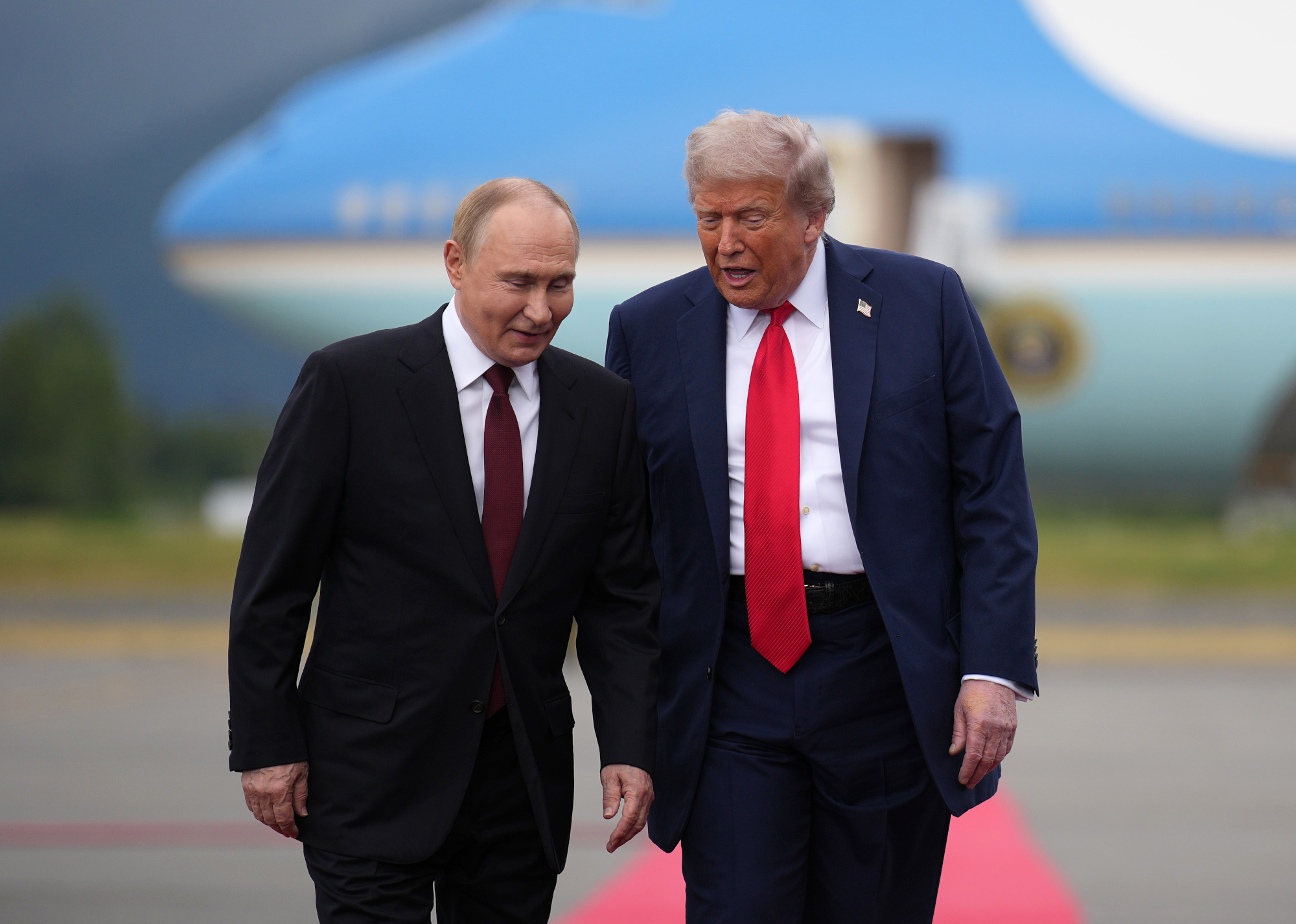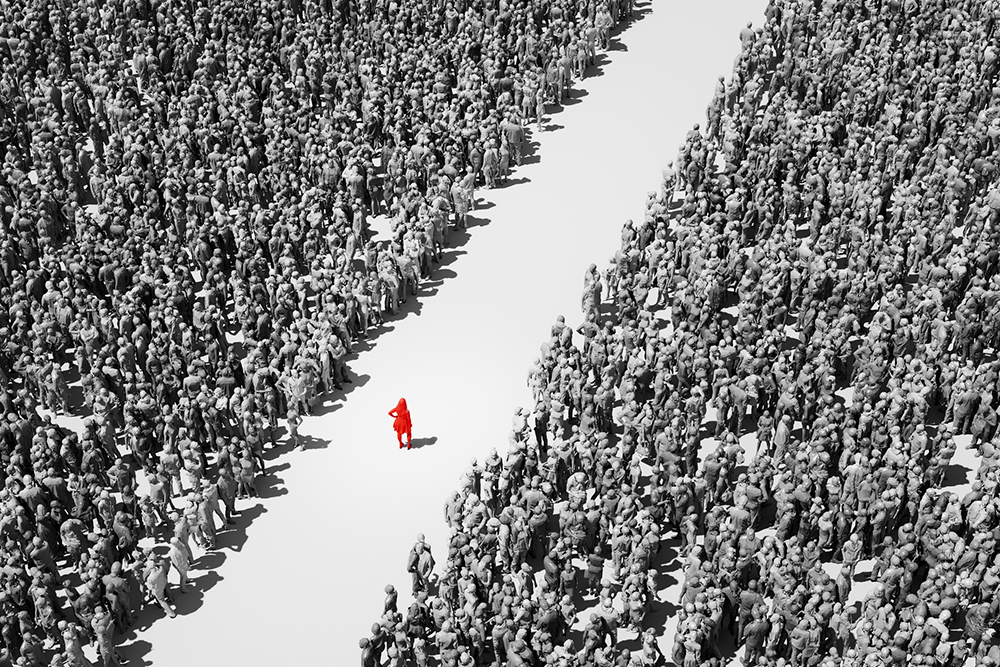The three-hour Friday summit in Alaska between Donald Trump and Vladimir Putin ended as well as it conceivably could have ended: as a big nothingburger. But that does not mean that Ukraine and its supporters can breathe a sigh of relief. Trump may be unhappy that the prospect of his Nobel Peace Prize remains elusive as Putin has not agreed to an immediate ceasefire in Ukraine. But it is far from clear that he will end up directing his anger against Russia.
The US president neither understands nor cares about understanding Putin’s motives and the threat he poses to the world
To be sure, it is a good thing that nothing of substance was agreed in Anchorage. Any big great-power bargain made over the heads of Europeans and Ukrainians, which Trump and Putin would then seek to impose on the hapless old continent, would mean the end of any semblance of a rules-based international order, in which borders of European nations are not redrawn by force.
We can be reasonably confident that Putin would have been happy to agree to an immediate ceasefire in exchange for Ukraine meeting his maximalist demands – Ukraine’s capitulation, the ceding of territories that Russians do not yet control, or a prompt election to unseat Volodymyr Zelenskyy. The failure to reach a deal with Trump suggests that the US administration has not bought into Russia’s interpretation of the war and how to end it – at least not yet.
The presence of Secretary of State Marco Rubio, once a Russia hawk, in the room might have played a role in preventing the worst-case outcome – unlike in Helsinki where the US president was left with Putin unsupervised for several hours. Yet, ‘normie’ Republicans must have felt more than a bit of shame about the spectacle that Trump orchestrated – the red carpet, the ride in the ‘Beast’, and the apparent warmth extended to a mass murderer and child kidnapper all reflect poorly on the United States – and help return Putin from pariah status to a respected global leader.
Relatedly, while the summit did not bring about a catastrophe for Ukraine, neither is it likely to lead to better Ukraine policy in Washington. It is hard to imagine now a tightening of existing, congressionally mandated sanctions by the executive branch – never mind the bill put forward by Senators Graham and Blumenthal, imposing a de facto trade embargo on countries buying Russian oil and gas, getting through a Republican-controlled Senate. And, even if Trump does not stand in the way of military sales to Ukraine, it will have to be the Europeans who continue to do the financial heavy lifting – all while being held hostage by America’s sluggish defence industrial base.
Finally, an ominous, ugly thought. In his remarks, Vladimir Putin warned Kyiv and European capitals against ‘throw[ing] a wrench’ into the works of the emerging deal (whatever it may be) between Russia and the United States. Clearly, the Russian dictator is playing the long game here: hoping to peel off the United States away from the broader pro-Ukrainian coalition. By itself, the summit has not accomplished that goal yet, but it has likely opened new opportunities to lure Trump and his inner circle closer to Russia. Even before the summit, there was speculation about ‘money-making opportunities’ that could bring the two world powers closer together.
The presence of US Treasury and Commerce Secretaries, Scott Bessent and Howard Lutnick, and Russia’s Kirill Dimitriev, the head of the country’s sovereign wealth fund – alongside ‘tremendous Russian business representatives’, as Trump put it – signalled a desire on both sides for normalisation of ‘businesslike’ relations. In practice, that might mean more investment, trade and other ‘deals’ – especially ones that generate cash for the Trump family enterprise.
What lies at heart of the summit is that the US president neither understands nor cares about understanding Putin’s motives and the threat he poses to the world. In contrast, Putin, a former KGB lieutenant colonel, has a solid grasp of what makes Trump and his entourage tick. He might make the occasional mistake and overplay his hand but he has focus, consistency, and a voracious appetite. And all of those, wrapped in a thoroughly delusional view of the world and Russia’s place in it, were both on full display and unchallenged on Friday.








Comments